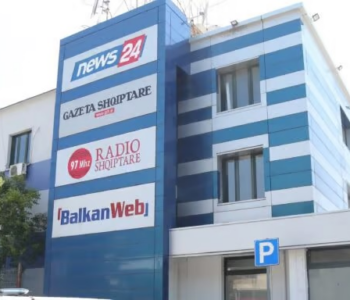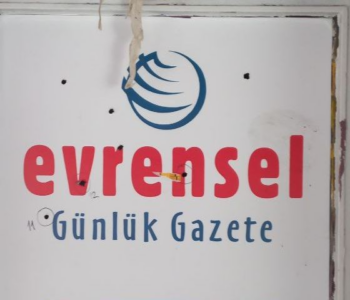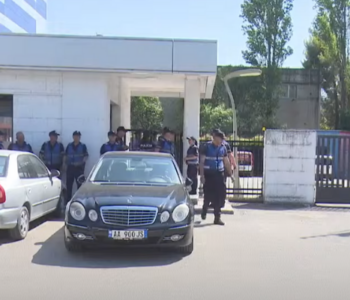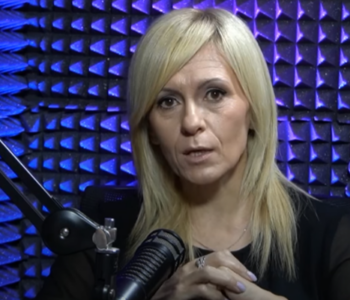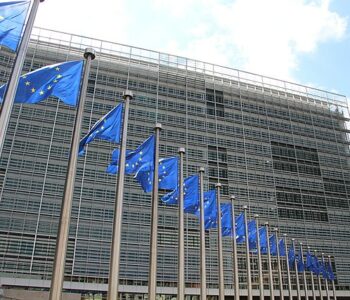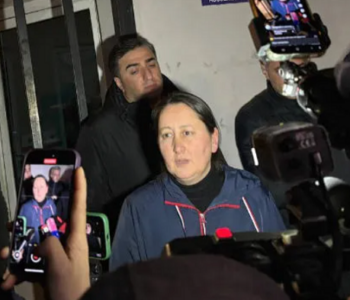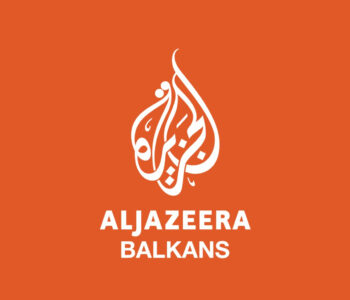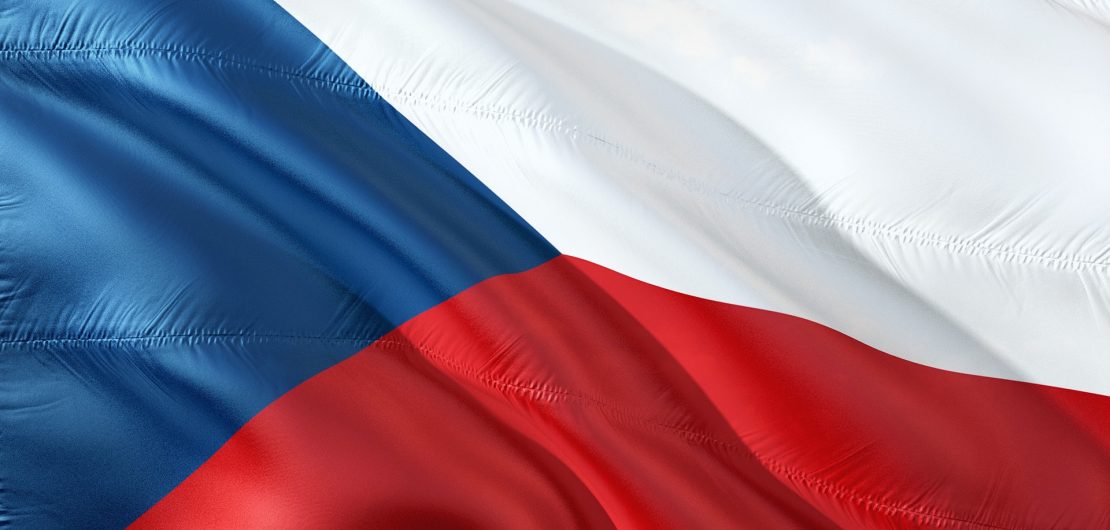 Allgemein
Allgemein
Ten demands for maintaining media freedom in Czechia
Ten demands for maintaining media freedom in Czechia
Media freedom is the cornerstone of every democratic society. Independent journalism, together with media literacy and free access to information, is the best prevention against disinformation. In the run-up to the Czech parliamentary elections on 3 and 4 October 2025, the undersigned organisations therefore propose to political parties specific steps to protect these values.
04.09.2025
We present ten priority recommendations aimed at preventing undue restrictions on media freedom and access to information, increasing the protection of Czech and exiled journalists, strengthening the independence of public service media, as well as establishing fair and transparent conditions for the functioning of the media market. These recommendations are needed for media freedom to be maintained and improved in Czechia, ranked 10th out of 180 countries in RSF’s 2025 World Press Freedom Index.
Developed on the basis of consultations with experts and stakeholders, the proposed measures have been inspired by the European Union (EU) legislation, especially the European Media Freedom Act (EMFA), which recently came into force, as well as by the standards established by the Council of Europe.
We urge every democratic political party to subscribe to these ten principles as a reflection of their will to support citizens’ access to pluralistic and reliable information, which is a precondition for an informed public debate in a healthy democratic society.
- Address attacks on journalists
- Adopt or extend codes of conduct in parliament and political parties that allow for the condemnation of verbal attacks on journalists and disciplinary measures where appropriate.
- Create conditions for rapid and thorough investigation of physical and online attacks on journalists, including regional, independent and exiled reporters, and guarantee the rights and protection of journalists by a well-trained police, e.g. through the application of the International Press Freedom Police Codex.
- Ensure effective cooperation between law enforcement authorities and the emerging non-governmental platform for the safety of journalists of the Czech National Committee of the International Press Institute, as well as with other similar initiatives.
- Protect the media from Strategic lawsuits against public participation (SLAPPs)
- Effectively and timely implement the EU Anti-SLAPP Directive and Recommendation as well as the Recommendation of the Council of Europe’s Committee of Ministers and the Resolution of the Czech Government Council for Human Rights by
- applying the protection to both transnational and domestic cases;
- introducing a system of effective sanctions to deter the use of SLAPP;
- allowing courts to dismiss a lawsuit as SLAPP on their own initiative at an early stage of the proceedings;
- adopting measures to compensate victims for damages incurred as a result of SLAPP;
- ensuring that judicial and other authorities are informed in great detail about SLAPP issues;
- collecting systematically and publishing continuously data on SLAPP lawsuits targeting journalists.
- Do not restrict media freedom
- Refrain from any legislative measures that could potentially cause a chilling effect on journalists and silence them.
- Consult any legislative proposals impacting the media market, media freedom and the ability of journalists to gather and disseminate information with professional organisations of publishers and journalists.
- Respect the role of self-regulation
- Avoid criminalising the publication of public-interest information coming from the investigation by law-enforcement authorities.
- Respect the role of self-regulation, especially in defining the concept of “public interest” and in assessing possible violations of the code of ethics.
- Prevent the state and any public authority from defining the terms “journalist” and “publisher” beyond the legislation currently in force.
- Refrain from creating any lists of journalists or publishers (black or white lists) or any registers that could be misused.
- Consider exclusively the commitment of a media to a self-regulatory platform when taking a decision on distributing state advertisement, without using any evaluating tools.
- Refrain from entrusting the Council for Radio and Television Broadcasting (RRTV) with powers beyond the scope defined by the EMFA and give a preference to self-regulation over regulation where allowed by the EMFA.
- Ensure effective protection of confidentiality of journalistic sources and communications
- Ensure that the use of surveillance technologies (e.g. spyware) against journalists is always subject to prior approval by an independent judicial authority and meets all other conditions in accordance with the Article 4 of the EMFA.
- Guarantee that surveillance technologies are not misused against journalists under the pretext of national security or for any other purpose arising from EU Council Framework Decision 2002/584/JHA.
- Entrust an independent body or entity with the relevant expertise to provide assistance to the persons specified in Article 4(8) of the EMFA in exercising their right to effective judicial protection.
- Improve access to public information and political events
- Shorten the deadlines for deciding on appeals and remove unjustified fees for information serving the public interest by amending the Czech Freedom of Information Act.
- Ensure equal access to information and to public events and allow for accreditation for meetings and press conferences of the government, parliament, and political parties for all journalists, regardless of their editorial affiliation.
- Protect the copyright of the media
- Establish a legislative environment that respects the copyright and publishing rights of Czech media and protects them from abuse by digital platforms, including generative artificial intelligence training models.
- Support collective administrators and professional organisations of publishers and journalists in negotiating remuneration terms with platforms in accordance with the EU Directive on Copyright in the Digital Single Market.
- Actively participate in European negotiations on a common approach to digital platforms.
- Strengthen the independence and relevance of public service media
- Maintain Czech Television, Czech Radio and Czech Press Agency as editorially independent public service media and their current funding models to minimise political influence and interference.
- Ensure transparent and pluralistic nomination procedures for the public service media councils in line with the EMFA, and establish expertise as a key criterion for selecting their members.
- Support the memorandum between public service media and private media.
- Create conditions for the functioning of a pluralistic private market
- In order to protect pluralism in the media market, ensure fair conditions of competition on the advertisement market and in online space between public and private media, in accordance with the European Commission’s Communication on the application of state aid rules to public media.
- In accordance with Articles 6 and 25 of the EMFA, ensure transparent and fair allocation of state advertising, while respecting a transparent and non-discriminatory audience measurement system developed in the media sector.
- Refrain from criminalising media that receive transparent funding from foreign and cross-border sources.
- Support media freedom in undemocratic countries
- Guarantee a free, stable and safe environment for exiled journalists and media based in Czechia and broadcasting towards non-democratic countries, so that they can provide reliable information as an alternative to government propaganda.
Deset požadavků na udržení svobody médií v Česku
Svoboda médií je základem každé demokratické společnosti. Nezávislá žurnalistika je spolu s mediální gramotností a svobodným přístupem k informacím nejlepší prevencí proti dezinformacím. S blížícími se parlamentními volbami v Česku 3. – 4. října 2025 proto níže podepsané organizace důrazně vyzývají všechny politické strany, aby přijali konkrétní kroky, které tuto nezcizitelnou svobodu ochrání.
Předkládáme deset prioritních doporučení zaměřených proti neoprávněnému omezování svobody médií a přístupu k informacím, zvýšení ochrany českých i exilových novinářů, posílení nezávislosti veřejnoprávních médií a nastavení spravedlivých a transparentních podmínek pro fungování mediálního trhu. Tato doporučení jsou nezbytná pro udržení a zlepšení svobody médií v České republice, která se v roce 2025 umístila na 10. místě ze 180 zemí v Indexu svobody tisku organizace Reportéři bez hranic (RSF).
Navrhovaná opatření byla vypracována na základě konzultací s odborníky a zúčastněnými stranami a byla inspirována legislativou Evropské unie, zejména Evropským aktem o svobodě médií (EMFA), který nedávno vstoupil do účinnosti, a také standardy Rady Evropy.
Naléhavě žádáme všechny demokratické politické strany, aby se přihlásily k těmto deseti principům a projevily tím vůli podporovat přístup občanů k pluralitním a spolehlivým informacím, což je předpokladem pro informovanou veřejnou debatu ve zdravé demokratické společnosti.
- Řešit útoky na novináře
- Přijmout, nebo rozšířit, kodexy chování v parlamentu a politických stranách, které umožní odsouzení verbálních útoků na novináře a případná disciplinární opatření.
- Vytvořit podmínky pro rychlé a důkladné vyšetření fyzických a online útoků na novináře, včetně regionálních, nezávislých a exilových novinářů, a zajistit jejich práva a ochranu prostřednictvím dobře vyškolené policie (např. uplatněním Mezinárodního kodexu policie pro svobodu tisku).
- Zajistit účinnou spolupráci mezi orgány činnými v trestním řízení a vznikající nevládní platformou pro bezpečnost novinářů při Českém národním výboru Mezinárodního tiskového institutu, jakož i s jinými podobnými iniciativami.
- Chránit média před strategickými žalobami (SLAPP)
- Efektivně a včas implementovat směrnici EU proti žalobám SLAPP a doporučení Rady Evropy a usnesení české Rady vlády pro lidská práva:
- aplikovat ochranu na mezinárodní i vnitrostátní případy;
- zavést účinné sankce odrazující od použití SLAPP;
- umožnit soudům zamítnout žalobu jako SLAPP z vlastní iniciativy již v rané fázi řízení;
- přijmout opatření na odškodnění obětí SLAPP;
- zajistit, aby soudní i jiné relevantní orgány byly detailně informovány o problematice SLAPP;
- systematicky shromažďovat a průběžně zveřejňovat data o SLAPP žalobách mířených na novináře.
- Neomezovat svobodu médií
- Zdržet se legislativních kroků, které by mohly mít zastrašující účinek na novináře a umlčet je.
- Projednávat s profesními organizacemi vydavatelů a novinářů legislativní návrhy s dopadem na mediální trh, svobodu médií a schopnost novinářů získávat a šířit informace.
- Respektovat roli samoregulace
- Nekriminalizovat zveřejňování informací ve veřejném zájmu pocházejících z vyšetřování orgánů činných v trestním řízení.
- Respektovat roli samoregulačních orgánů, při definování pojmu „veřejný zájem“ a při posuzování možného porušení etického kodexu.
- Zabránit tomu, aby stát nebo jiný veřejný orgán definoval pojmy „novinář“ a „vydavatel“ nad rámec stávající legislativy.
- Nevytvářet žádné seznamy novinářů či vydavatelů (černé nebo bílé listiny), ani evidence, které by mohly být zneužity.
- Při rozhodování o rozdělování státní inzerce brát v potaz výhradně příslušnost média k samoregulačnímu orgánu, nepoužívat žádné hodnotící nástroje.
- Neudělovat Radě pro rozhlasové a televizní vysílání (RRTV) pravomoci přesahující rámec stanovený EMFA a upřednostňovat samoregulaci všude, kde to EMFA nabízí.
- Zajistit efektivní ochranu důvěrnosti novinářských zdrojů a komunikace
- Zajistit, aby používání sledovacích technologií (např. spyware) vůči novinářům bylo vždy podmíněno předchozím souhlasem nezávislého soudního orgánu a splňovalo všechny podmínky podle článku 4 EMFA.
- Zabránit zneužití sledovacích technologií vůči novinářům pod záminkou národní bezpečnosti nebo jiných důvodů podle rámcového rozhodnutí Rady EU 2002/584/SVV.
- Pověřit nezávislý subjekt s odborností, aby pomáhal osobám uvedeným v článku 4(8) EMFA uplatňovat jejich právo na účinnou soudní ochranu.
- Zlepšit přístup k veřejným informacím a politickým událostem
- Zkrátit lhůty pro rozhodování o odvoláních a odstranit neopodstatněné poplatky za informace sloužící veřejnému zájmu novelou zákona o svobodném přístupu k informacím.
- Všem novinářům bez ohledu na jejich příslušnost k redakci zajistit rovný přístup k informacím a na veřejné akce, a umožnit akreditaci na zasedání a tiskové konference vlády, parlamentu a politických stran.
- Chránit autorská práva médií
- Vytvořit legislativní prostředí, které bude respektovat autorská a vydavatelská práva českých médií a ochrání je před zneužitím digitálními platformami, včetně modelů generativní umělé inteligence.
- Podpořit kolektivní správce a profesní organizace vydavatelů a novinářů při vyjednávání o odměnách s platformami podle směrnice EU o autorském právu na jednotném digitálním trhu.
- Aktivně se zapojit do evropských jednání o společném přístupu k digitálním platformám.
- Posilovat nezávislost a relevanci veřejnoprávních médií
- Zachovat Českou televizi, Český rozhlas a Českou tiskovou kancelář jako redakčně nezávislá veřejnoprávní média a jejich současné modely financování pro minimalizaci politického vlivu a vměšování.
- Zajistit transparentní a pluralitní nominační procesy do rad veřejnoprávních médií v souladu s EMFA a stanovit odbornost jako klíčové kritérium pro výběr jejich členů.
- Podpořit memorandum mezi veřejnoprávními a soukromými médii.
- Vytvářet podmínky pro fungování pluralitního soukromého trhu
- Za účelem ochrany plurality na mediálním trhu zajistit férové podmínky pro konkurenci na reklamním trhu a v online prostředí mezi veřejnoprávními a soukromými médii v souladu se Sdělením Evropské komise o pravidlech státní podpory.
- V souladu s články 6 a 25 EMFA zajistit transparentní a spravedlivé přidělování státní inzerce a respektovat transparentní a nediskriminační systém měření sledovanosti vyvinutý v mediálním sektoru.
- Zdržet se kriminalizace médií, která získávají transparentní financování ze zahraničních nebo přeshraničních zdrojů.
- Podporovat svobodu médií v nedemokratických zemích
Zaručit svobodné, stabilní a bezpečné prostředí pro exilové novináře a média se sídlem v České republice, která vysílají do nedemokratických zemí, aby mohla poskytovat spolehlivé informace jako alternativu k vládní propagandě.
This statement was coordinated by the Media Freedom Rapid Response (MFRR), a Europe-wide mechanism which tracks, monitors and responds to violations of press and media freedom in EU Member States and Candidate Countries.

